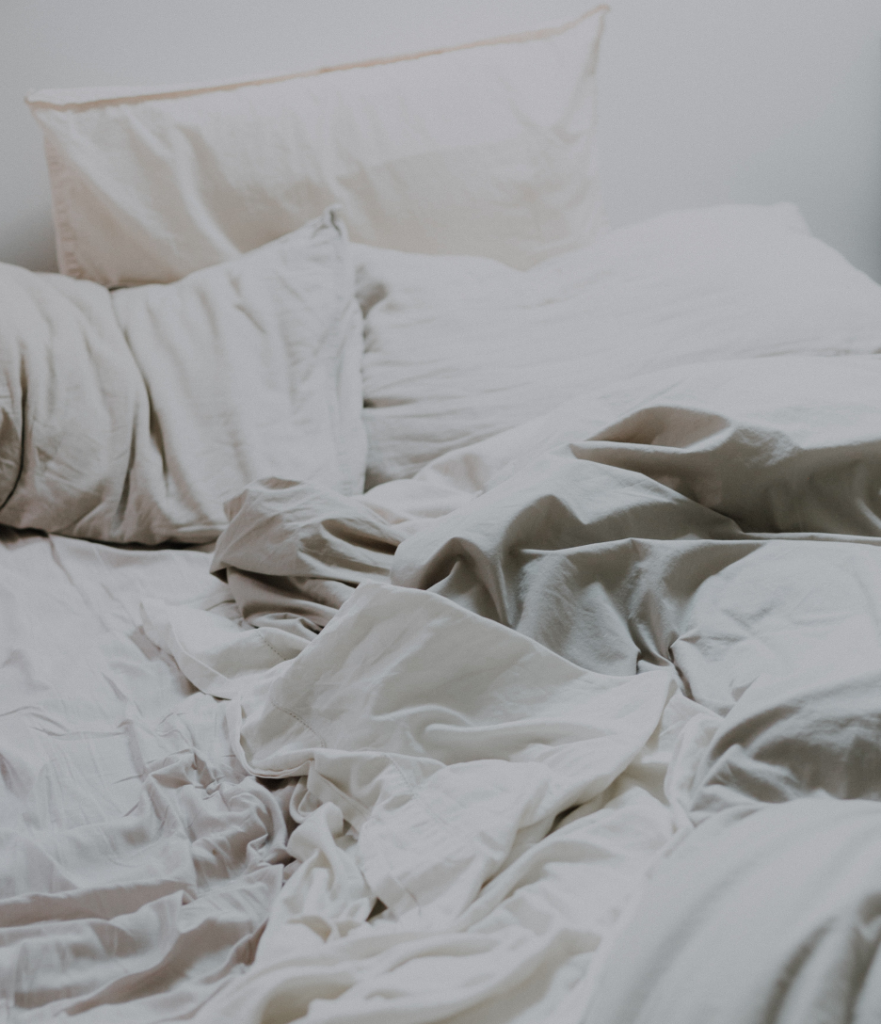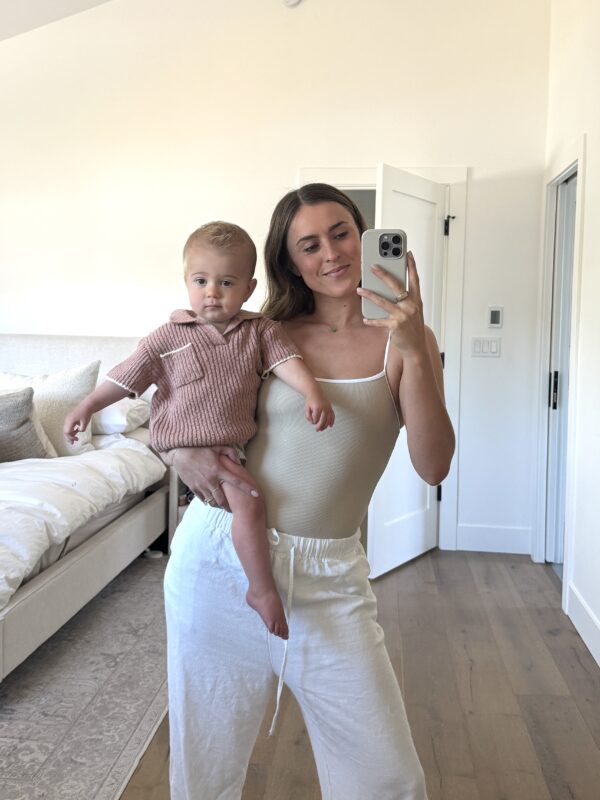
If you follow me on instagram you know that training is my form of self care. Developing my Good Sweat guides and connecting with you guys on my Live workouts is my passion! But there is so much that I do behind the scenes to enhance my self care routine — you know that I’m all about eating nutrient dense meals and doing my 7 day added sugar detox a handful of times a year. And maybe you’ve even caught me napping from time to time on Bridger’s stories… but there is no shame in my napping game because GOOD SLEEP is the ultimate self care.
I aim for 7-8 hours of quality sleep every night. A good night of sleep helps me go harder in the gym and avoid the afternoon slump. Of course there are days/weeks where 7-8 hours isn’t always realistic, but it is always my goal. On busy days or when I’m feeling sluggish, I swear by 15-minute power naps!!
Ok you guys, the rest of this post has lots of technical detail but I encourage you to read through it to understand just how important sleep is!!!! Let’s train together, but also, recover together =)
Sleep for training: it is no surprise that not sleeping well leads to not training well — you will not be nailing your form or meeting your goals if you are feeling sluggish and lazy, not to mention, have the motivation to even get up and moving! So not only is rest important in waking up alert and energized, but also to encourage muscle recovery. Falling into a deep sleep allows the body and brain to slow down and engage in recovery, aka allowing your heart to rest and cells and tissues to repair. During deep sleep is when the human growth hormone is released, which supports bone and muscle development… aka your gains in the gym will only show up if you SLEEP (1)! There are some insane studies on how more sleep positively affects athletes, for example a Stanford study of men’s basketball players who extended their sleep to 10 hours a night ran faster in both half-court and full-court sprints, their shooting improved by at least 9%, and the athletes reported improved physical and mental well-being (2). Do we need any more proof??
Sleep for stress: ok, we have all have nights that we don’t get enough sleep and have the mood to prove it (think irritable, short-tempered, stressed). Sleep affects memory and judgement, and research has shown that most Americans would be happier, healthier and safer if they were to get an extra 60 to 90 minutes per night (3). Cortisol, which is part of the body’s stress response system, will surge when you’re sleep deprived, causing the body to operate from a state of flight or fight which is NOT ideal when you need to study, work, and focus (4). Sleep and stress go hand in hand — if you’re not getting good sleep you’ll feel stressed, and if you’re feeling stressed you won’t get good sleep. There are SO many stressors that we all deal with on a daily basis, but getting a good night of sleep will help you approach them with a level-head and positive energy.
Sleep for diet: first of all, being tired makes me 100% more likely to skip a workout and reach for comfort foods (SNACKS) which perpetuates the cycles of not feeling my best. Research actually supports those habits are a result of poor sleep, stating that sleeping too little prompts eating bigger portions of all foods and increasing cravings for energy-dense, high-carbohydrate foods (5). Because your body is short on energy, you’re naturally going to reach for foods that are energy dense for a quick-hit. The important message to take away here is that a good sleep routine supports a healthy diet by keeping cravings in check and supporting good decision making.
Sooo, basically if you want to have a strong cardiovascular system, good immunity and stress levels, good memory and cognitive function, a balanced and nutritious diet, oh and you want to be happier and healthier in general, we HAVE to prioritize sleep.
I think this goes without saying, but having a good night-time routine to really wind down and relax is critical to good sleep. Would you guys be interested in hearing more about mine?? Comment below! 🙂
Sources:
What Happens When You Sleep? Sleep Foundation: A OneCare Media Company, 2020. https://www.sleepfoundation.org/how-sleep-works/what-happens-when-you-sleep
Sleep, Athletic Performance, and Recovery. Sleep Foundation: A OneCare Media Company, 2021. https://www.sleepfoundation.org/physical-activity/athletic-performance-and-sleep
Stress and sleep. American Psychological Association, 2021. https://www.apa.org/news/press/releases/stress/2013/sleep
How Does Cortisol Affect Your Sleep? Healthline, 2020. https://www.healthline.com/health/cortisol-and-sleep
Sleep more, weigh less. Nourish, by WebMD, 2021. https://www.webmd.com/diet/sleep-and-weight-loss#2














I would love if you shared!
Rachael, I LOVE this sleep info—I’m an early-to-bed person and use meditation, reading and no screens before bed (my phone setting turns off apps at 8pm). I’d love to hear your bedtime routine. My husband and I watch very little TV—not every night—and have great conversations instead!
Yes I definitely would like to learn more about your nightly routine! Especially during the nights you don’t feel very sleepy, but you want to get to bed early… tough lol
I would love to hear more about your bedtime routines. I know I don’t get enough sleep and think it is a big driver in my weight gain/difficulty with losing weight. I work long hours (13 typically) and struggle to get enough rest on those days but also have a hard time falling/staying asleep.
Could you please post your night time routine and how you are able to ensure good sleep for someone struggling to sleep through the night/fall back asleep!!